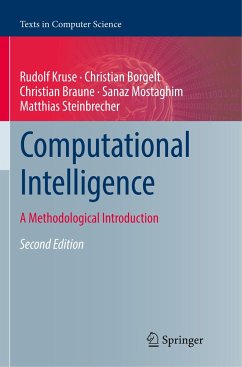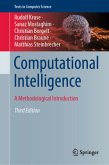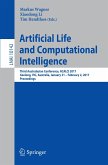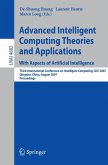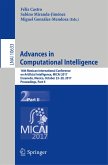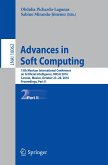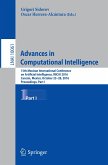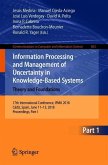This textbook provides a clear and logical introduction to the field, covering the fundamental concepts, algorithms and practical implementations behind efforts to develop systems that exhibit intelligent behavior in complex environments. This enhanced second edition has been fully revised and expanded with new content on swarm intelligence, deep learning, fuzzy data analysis, and discrete decision graphs.
Features: provides supplementary material at an associated website; contains numerous classroom-tested examples and definitions throughout the text; presents useful insights into all that is necessary for the successful application of computational intelligence methods; explains the theoretical background underpinning proposed solutions to common problems; discusses in great detail the classical areas of artificial neural networks, fuzzy systems and evolutionary algorithms; reviews the latest developments in the field, covering such topics as ant colonyoptimization and probabilistic graphical models.
Features: provides supplementary material at an associated website; contains numerous classroom-tested examples and definitions throughout the text; presents useful insights into all that is necessary for the successful application of computational intelligence methods; explains the theoretical background underpinning proposed solutions to common problems; discusses in great detail the classical areas of artificial neural networks, fuzzy systems and evolutionary algorithms; reviews the latest developments in the field, covering such topics as ant colonyoptimization and probabilistic graphical models.
"It is a great book, very well written, that presents solid content in a very rigorous theoretical and practical way and provides an excellent methodological guide to the area of computational intelligence -one that could be qualified as a 'must' for the library of any student, professor, researcher or professional in that area." (José Luis Verdegay, Mathematical Reviews, May, 2017)
From the reviews:
"This book teaches computational intelligence (CI) in a thorough, methodological manner that is theoretically profound and educationally oriented. ... this book is well designed for the independent student who wishes to learn the fundamentals of CI without the need for an instructor. The organization and thorough step-by-step methodology makes it an excellent startup guide for someone who wants to learn CI ... . This book is targeted at beginners, students, or professionals who wish to understand CI." (Mario Antoine Aoun, Computing Reviews, February, 2014)
"The book under review is a textbook that features sub-symbolic approaches developed within the field of Artificial Intelligence ... . It can be used as a companion book for lectures, with exercises and slides to be found on the book's website. With its focus on sub-symbolic approaches, it presents a comprehensive and detailled source of information complementary to other commonly used textbooks in Artificial Intelligence that mostly focus on symbolic approaches." (Jana Köhler, zbMATH, Vol. 1283, 2014)
"The book is a comprehensive treatise on computational intelligence with a focus on the underlying methodology and algorithms. ... The reader can enjoy a comprehensive and systematically arranged exposure of the material. ... The references following each chapter can serve as a list of introductory readings on the individual areas of computational intelligence. ... the reader gains a good sense of computational intelligence as an important endeavor supporting analysis and synthesis of intelligent systems. ... a useful compendium of knowledge for a broad audience." (Witold Pedrycz, Mathematical Reviews, November, 2013)
"This book teaches computational intelligence (CI) in a thorough, methodological manner that is theoretically profound and educationally oriented. ... this book is well designed for the independent student who wishes to learn the fundamentals of CI without the need for an instructor. The organization and thorough step-by-step methodology makes it an excellent startup guide for someone who wants to learn CI ... . This book is targeted at beginners, students, or professionals who wish to understand CI." (Mario Antoine Aoun, Computing Reviews, February, 2014)
"The book under review is a textbook that features sub-symbolic approaches developed within the field of Artificial Intelligence ... . It can be used as a companion book for lectures, with exercises and slides to be found on the book's website. With its focus on sub-symbolic approaches, it presents a comprehensive and detailled source of information complementary to other commonly used textbooks in Artificial Intelligence that mostly focus on symbolic approaches." (Jana Köhler, zbMATH, Vol. 1283, 2014)
"The book is a comprehensive treatise on computational intelligence with a focus on the underlying methodology and algorithms. ... The reader can enjoy a comprehensive and systematically arranged exposure of the material. ... The references following each chapter can serve as a list of introductory readings on the individual areas of computational intelligence. ... the reader gains a good sense of computational intelligence as an important endeavor supporting analysis and synthesis of intelligent systems. ... a useful compendium of knowledge for a broad audience." (Witold Pedrycz, Mathematical Reviews, November, 2013)

